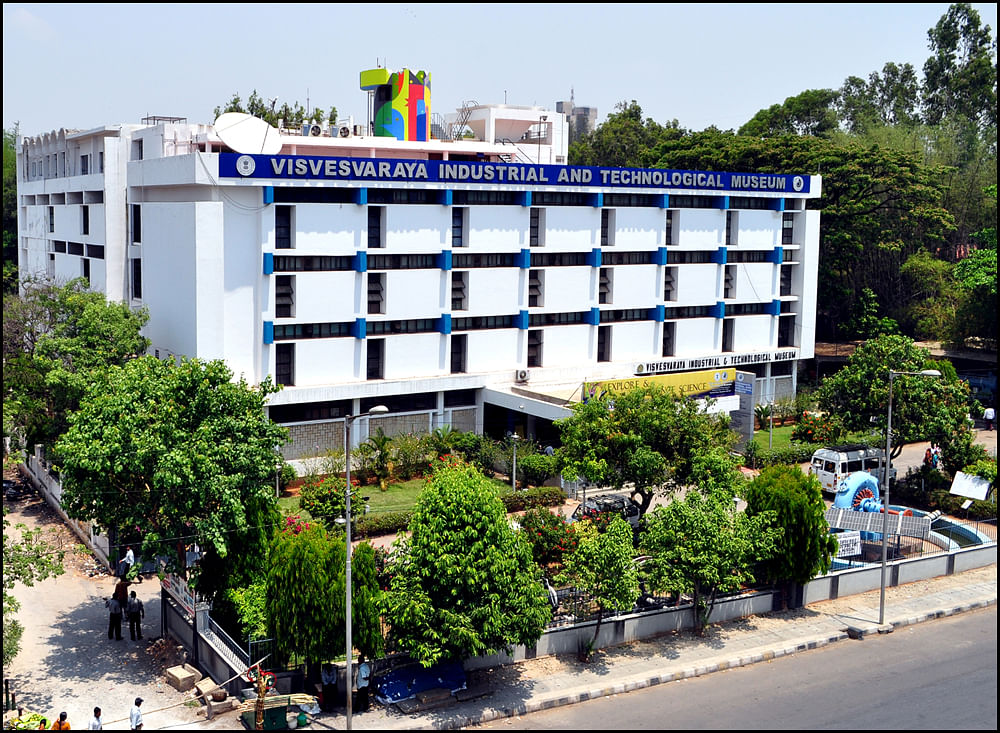
A mega science exhibition showcasing India's participation in international science projects would be held in Bengaluru from next month.
On display would be the seven mega-science projects in which India is collaborating with other international scientific bodies; European Organisation for Nuclear Research (CERN), Facility for Antiproton and Ion Research (FAIR), India-based Neutrino Observatory (INO), International Thermonuclear Experimental Reactor (ITER), Laser Interferometer Gravitational-Wave Observatory (LIGO), Square Kilometer Array (SKA), Thirty Meter Telescope (TMT).
The 'Vigyan Samagam: Pushing The Frontiers of Science' will be held in Visvesvaraya Industrial & Technological Museum from 29 July-28 September.
The Vigyan Samagam is an effort of the Department of Science and Technology (DST), Department of Atomic Energy (DAE) and National Council for Science Musuems (NCSM).
The exhibition is currently in Mumbai - where it is being held from 8 May-7 July ay the Nehru Science Centre. After Mumbai and Bengaluru, it would travel to Kolkata and New Delhi.
"We have got very good response. So far, the footfall has been over 1.3 lakh. It is very encouraging for us," said Shivaprasad M Khened, director of Nehru Science Centre, Mumbai.
In the years and decades to come, these projects and findings from them are sure to bring about a paradigm shift in our understanding of our universe and in the process these understanding could benefit human society immensely.
The major attraction of the Vigyan Samagam is an exhibition ‘Accelerating Science’ which has travelled all the way from the prestigious internationally acclaimed scientific research institution CERN (European Union of Nuclear Research), Geneva, Switzerland.
The current generation of school students are the future leaders who will be taking active participation in the mega-science projects, therefore, creating awareness about such mega-science projects among them is one of the main important objectives of the mega exhibition.
"Most of the mega-science projects are in their early stage of development whether they are being set-up or planned or recently started. Therefore, involving current generation school/college students are very pivotal for the future scientific & technological development of our nation," said Khened.